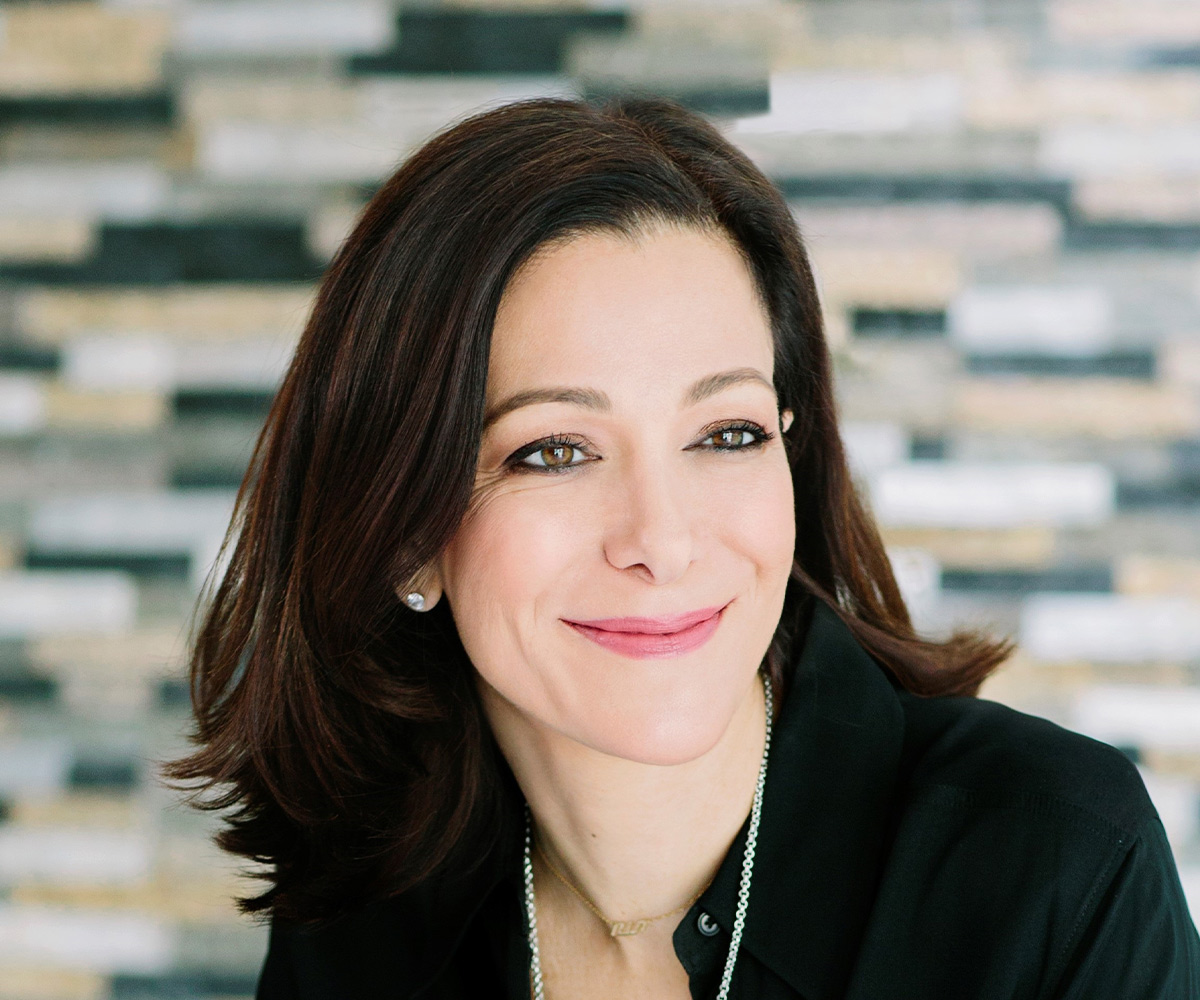SUMMARY
Women entrepreneurs represent vast untapped potential in the global economy, but access to finance and to business networks remains a challenge for them. We spoke to Mona Ataya of Mumzworld to find out how she broke through the barriers to turn her idea into a market-leading brand.
Female entrepreneurship is on the rise.
Around the world, women are behind a growing number of innovative businesses of every shape and size.
But while female founders are making great strides to erase the longstanding inequity within entrepreneurship, they still face formidable barriers.
Few businesses can achieve their full potential without access to capital, especially in the early growth stages.
However, women-owned businesses find it especially difficult to get venture capital funding, a vital source of financing for many of the world’s most exciting new companies.
VC decision makers remain overwhelmingly male, and perhaps only a couple of percent of overall funding flows to companies founded by females.
The imbalance is to the cost of people of all genders. According to Citi GPS, unlocking the potential of women entrepreneurs could add $2 trillion to global GDP.
So, how can this happen?
One woman who has unlocked her own potential is Mona Ataya, founder and CEO of UAE-based Mumzworld, the biggest online child and baby product shop in the Middle East.
Ataya grew Mumzworld from scratch into a leading e-commerce vertical company now serving over 2.5 million customers across its home region. The business has won multiple awards for its e-commerce shopping experience and customer service.
Ying Qin, Global, Thematic Analyst at Citi Global Insights, sat down with Ataya at the Citi Women's Entrepreneur Event held recently in Dubai to learn more about her personal journey to becoming one of the most recognizable businesswomen in the Middle East.
Ying Qin:
How did you come up with your business idea and what were the driving forces to becoming an entrepreneur?
Ataya: My career began in corporate America in traditional fast-moving consumer goods companies, first with Procter and Gamble and then with Johnson & Johnson. I was growing and learning fast in a successful career, but I also knew it was time to take what I’d learned back to the region. It was time to start my entrepreneurial journey. Joining forces with three other leaders, I went back to the UAE when digital was still at its nascent phase and we became among the early pioneers in starting digital businesses, using Dubai as our initial springboard.
That first business was the recruitment site bayt.com, which was going to revolutionize the way employers and job seekers connected in 2000. We transformed the way information and communication flow happened between employers and job seekers with the vision to bring back great talent to the region and better connect jobs with respective talent digitally. We were the pioneers and revolutionized recruitment in the Arab world. Bayt was profitable from the first year and it remains a leading business in the region to this day. But during that time, I started forming the idea for Mumzworld. As a mother of three children, I didn’t feel I had access to a choice of good products tailored to mums, and prices for those on the market were very high. As a consumer, I was dissatisfied.
Also, e-commerce was taking off globally. It was a $1.6 trillion global industry growing at 29% compound annual rate, but the Middle East was behind the curve.
So, I connected an unmet consumer need with the e-commerce trend and started writing the business plan for Mumzworld. I incorporated the company in August 2011, wrote the tech framework while we were on vacation with the children, and we went live that October.
Qin:
Tell us about your fundraising experience. Did you find it a challenge?
Ataya: The first $450,000 came from me and my two partners at Bayt. Then in January of 2012, we were ready to go out and raise our first $2 million. I went to SuperAngels in Dubai and to an institutional investor giant in Kuwait. We raised $2 million in almost 10 days. Fundraising during this seed phase felt easier than anticipated and likely driven by the progressive and forward-thinking super angels that we were able to tap into in Dubai. A year and a half later, we wanted to raise our B round of $5 million. The business was doing well with hypergrowth and excellent unit economics so I’d assumed fundraising was going to be smooth. It was not. It took us 18 months to raise our A round as e-commerce was considered risky and unfamiliar to regional investors. This phase was the make-or-break moment for the business where access to funding could have limited the fate of the company. Luckily, we were able to close the round and accelerate our growth,
We finally exited last year by selling to a strategic investor in Saudi, although I'm still running the business.
Qin:
What kept you knocking on doors after many investors had said no?
Ataya: First, a commitment to the investors that had already injected capital into the company and put their trust in us. Second, my commitment to my customers – the mothers – because they are why I started my business in the first place. Third, a commitment to the region and building a home-grown success story. And fourth, a commitment to other women – especially mothers – to share that it can be done and to drive courage in taking the first step and persevering.
Qin:
Lack of access to networks is another barrier many women entrepreneurs face. Was that a challenge for you too?
Ataya: Networks are important, but you can also create your own networks. I’m an introvert by nature. Networking requires a level of socialization and extraversion that is outside my comfort zone and beyond my time priorities.
At Mumzworld, my partners from Bayt were my initial network. Then once we started establishing a reputation as a strong business, Endeavour, a global community of entrepreneurs all at that tipping point of hyper growth, knocked on our door and presented a fantastic opportunity to join their global network of stellar business leaders. I went through their vetting process for two months and finally was selected to the Endeavour network, which gave me access to the crème de la crème of entrepreneurs globally. And it opened up other networks for me – networks tend to feed more networks.
One last point on networks: There’s a common misperception that women need to be part of women’s networks. And it’s not true. Actually, it can be counterproductive. Your network needs to be diverse to enrich you.
Qin:
What is it like being a woman entrepreneur in the Middle East
Ataya: I wouldn’t have been able to grow Mumzworld as fast and as far if it wasn’t in Dubai. The UAE was pioneering. When I wrote the business plan, I sent it to Dubai Internet City Free Zone. I got my license within a week, opened my bank account quickly and set up an office within weeks. Nowhere else in the entire Gulf Cooperation Council (GCC) ecosystem would have enabled all that to happen so easily.
Qin:
What advice would you give to women entrepreneurs at the beginning of their journey?
Ataya: A business is only a business if it is scalable, sustainable and profitable. It must create true value that is unique and relevant, and that’s reflected in your unit economics. If customers are getting a product or service that is of importance and a real benefit to their lives, they are not getting it elsewhere, and you are building with smart unit economics in a macroeconomic climate that is favorable, your business will stand the test of time.
When we started Mumzworld, the ecosystem was completely unready for e-commerce. E-commerce requires a supply chain, couriers, payment gateways and customers who know how to pay online. None of that existed in the UAE at the time we started. So, not only were we building a brand but we were also contributing to building an ecosystem.
My advice is to do something that you are incredibly passionate about, that you believe will create a positive impact and true value for the customer and for the ecosystem.
The journey isn’t easy. The first eight years were without pause. I had three children, a family, multiple shareholders, hundreds of thousands of customers and a fast-growing employee base who depended on the company for their livelihood. It was the journey I chose. You overcome challenges. You celebrate small wins. Persevere. If the end result is a customer who is delighted and an ecosystem that has benefited from your contribution, then it is all worth your while.






